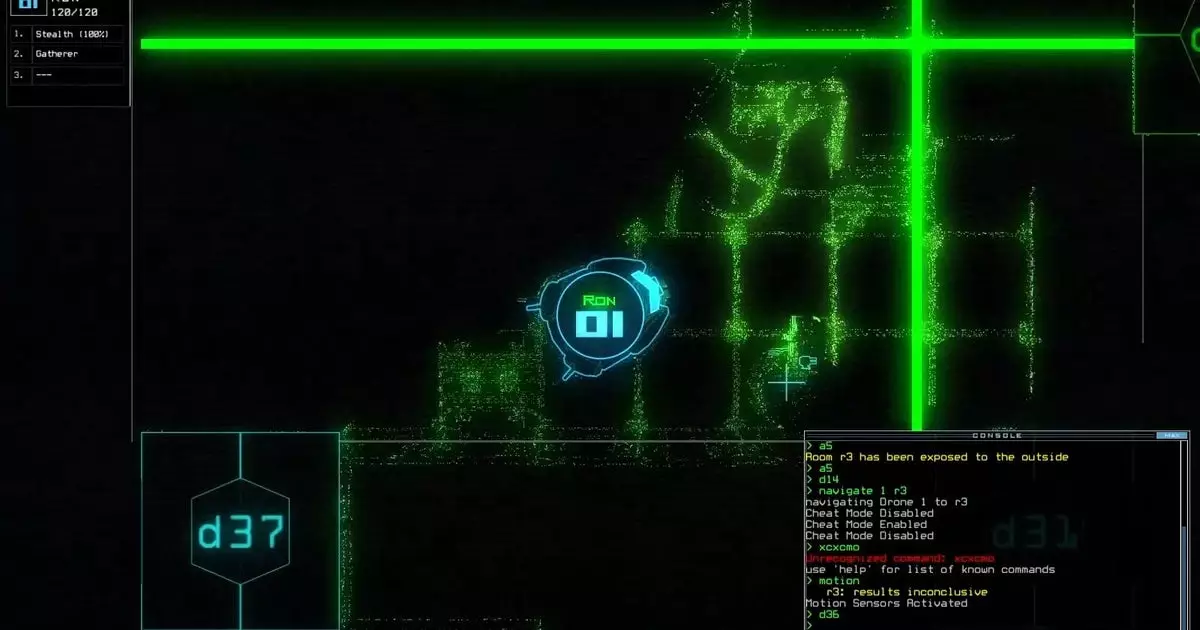The landscape of gaming is constantly evolving, and the realm of science fiction and space exploration is no exception. Misfits Attic, the creators behind the beloved indie title Duskers, are poised to make significant waves in this domain with their upcoming project, Humanity 2.0. Catering to fans of the original while diving deeper into thematic depth and gameplay sophistication, this new endeavor promises to blend existential themes with engaging mechanics.
Humanity 2.0 emerges as a spiritual successor to Duskers, inviting players to engage once again with the intricate world of rogue drones and dilapidated spacecraft. Communication from Misfits Attic reveals that players will revive an old, derelict vessel, applying their creativity to reconstruct a ship that can withstand the threats of space. The studio’s decision to incorporate user-driven upgrades to the drones introduces a fascinating twist; these AI sidekicks will exhibit ‘personality quirks’ that can affect gameplay significantly. The notion of cybernetic helpers grappling with fear of confined spaces introduces a relatable, almost human touch to robotic characters. This clever twist could lead to scenarios where managing bots’ emotional states adds a layer of strategy, beyond mere repair and control.
Tim Keenan, co-founder of Misfits Attic, emphasizes the overarching themes of “sacrificing to save the survivors” within a dystopian universe. This narrative ambition suggests a poignant exploration of morality, tapping into challenging decisions players must face while attempting to thrive in a grim reality. Rather than resorting to the typical upbeat trajectories present in many contemporary titles, Humanity 2.0 aims to maintain the weight of its dark themes, stating that the game’s tone is akin to “a ray of hope, not a sunrise.” This approach stands to differentiate Humanity 2.0 from its contemporaries, which often shy away from exploring the nuanced complexities inherent in a post-apocalyptic framework.
The rudimentary gameplay footage highlights familiar mechanics that fans of Duskers will recognize. The green retro interface, allowing players to issue commands like “slice,” brings back nostalgic memories of interactive decision-making and tactical spatial awareness. However, while the visual and mechanical foundations are rooted in its predecessor, Humanity 2.0 appears to expand upon the gameplay loop with additional challenges, such as ship defense tactics against pirate raids. The pre-alpha development stage suggests that the core mechanics are still being refined; nonetheless, the early glimpses indicate an expansion of the previously established framework, focusing on both creation and confrontation as pivotal themes.
Interestingly, Misfits Attic is not resting on its laurels with Humanity 2.0 alone. The studio has also unveiled two other projects in their pipeline. The first is an ambitious strategy game, known tentatively as “Scheme,” offering a fantasy world rife with political intrigue where players will weave through a tapestry of manipulation without resorting to direct combat. This dynamic, reminiscent of Game of Thrones, speaks to the rising demand for strategy titles that engage players in cerebral, rather than purely tactical, gameplay.
Another distinctive project, lightly named “Magic Wizard Chess,” ventures into the land of tactical roguelikes, promising unconventional gameplay interlaced with psychological evaluations that seem to add a surreal twist. By positioning genres and gameplay styles so diversely within their upcoming releases, Misfits Attic is demonstrating a remarkable versatility and willingness to explore uncharted territory in gaming.
The ambitions for Humanity 2.0 and its accompanying projects echo the momentous potential that Misfits Attic is exploring. The infusion of personality-driven drones, alongside challenging existential themes, not only captivates a returning audience but also broadens the appeal to new players navigating the expanding universe of indie gaming. As players eagerly await the release, the patience and excitement surrounding these innovative endeavors reflect a growing community that values not only gameplay but also the stories, feelings, and ethical dilemmas that accompany our explorations in both virtual and real-world spaces. Thus, the anticipation for Humanity 2.0 continues to swell, as fans and newcomers alike set their sights on this promising venture among the stars.


Leave a Reply